CPS Unit Number 095-01
Camp: 95
Unit ID: 1
Operating agency: BSC
Opened: 5 1943
Closed: 10 1945
Workers
Total number of workers who worked in this camp: 22
-
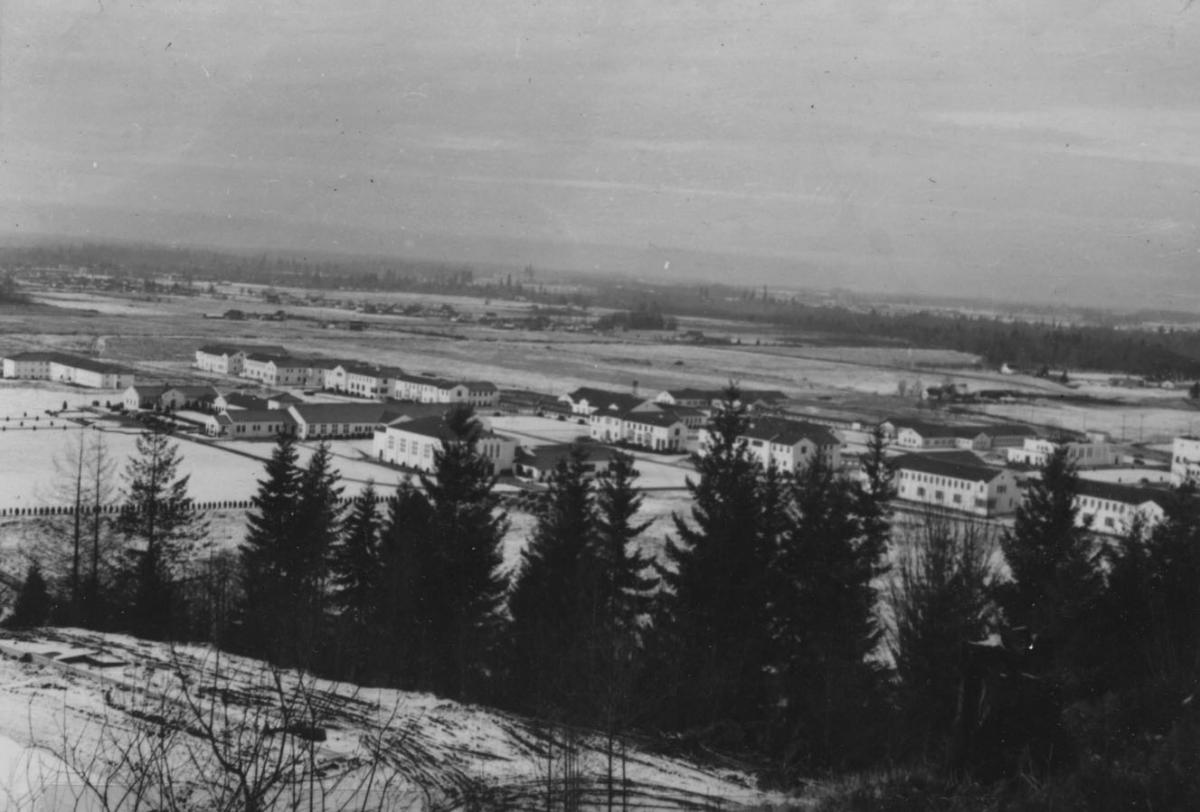 CPS Camp No. 95The Western State Custodial School (now called Rainier School) in Buckley.Washington State Archives, Box 36, 02A701
CPS Camp No. 95The Western State Custodial School (now called Rainier School) in Buckley.Washington State Archives, Box 36, 02A701 -
 CPS Camp No. 95The Western State Custodial School in Buckley, Washington, was a center for developmentally disabled children.Lewis and Clark Digital Collectionca. 1944
CPS Camp No. 95The Western State Custodial School in Buckley, Washington, was a center for developmentally disabled children.Lewis and Clark Digital Collectionca. 1944 -
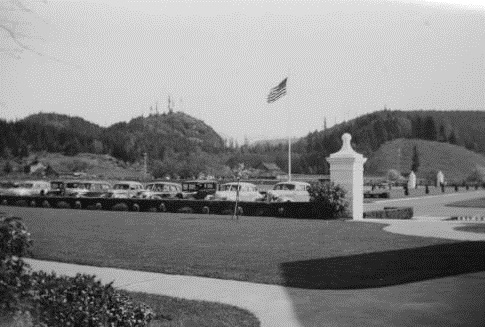 CPS Camp No. 95The Western State Custodial School in Buckley, Washington, was a center for developmentally disabled children.Lewis and Clark Digital Collectionca. 1944
CPS Camp No. 95The Western State Custodial School in Buckley, Washington, was a center for developmentally disabled children.Lewis and Clark Digital Collectionca. 1944 -
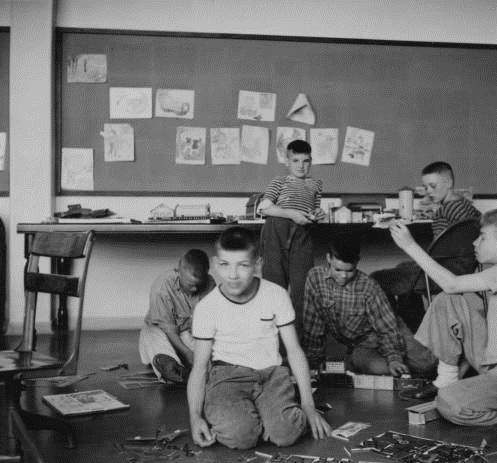 CPS Camp No. 95The Western State Custodial School in Buckley, Washington, was a center for developmentally disabled children.Lewis and Clark Digital Collectionca. 1944
CPS Camp No. 95The Western State Custodial School in Buckley, Washington, was a center for developmentally disabled children.Lewis and Clark Digital Collectionca. 1944
-

-
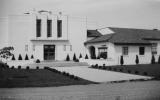 ca. 1944
ca. 1944 -
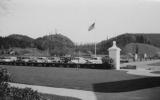 ca. 1944
ca. 1944 -
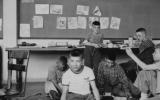 ca. 1944
ca. 1944
CPS Unit No. 95, a Training School unit located at Western State Custodial School in Buckley, Washington operated by the Brethren Service Committee, opened in May 1943 and closed in October 1945. The men worked the farm and dairy, the garden and the farm cottage, and were in charge of teaching and recreation.
Western State Custodial School was located at Buckley, Washington. This Brethren Service Committee CPS training school unit opened in May 1943 and closed in October 1945.
During the war, regular employees left jobs in training schools for higher salaries in the war industries. While Western State Custodial School’s capacity was limited to four hundred patients, it extended services to six hundred patients with far fewer staff available. CPS men not only came with interest in the work, but also they often brought applicable skills and worked without pay.
Directors: Alfred Johnson, Roland Ortmayer, Richard Tuttle
Men in Brethren camps and units tended to report diverse religious affiliation when they entered CPS, although the Brethren projects usually included a core of those with Brethren experience.
Men from Brethren projects reported considerably more education and professional experience than those who enlisted in the Army and Navy, and brought an average of 12.22 years of education. Thirty-nine percent of them had completed some college or four years, or some graduate work. Forty-six percent of men in Brethren camps reported their occupations on entry into CPS as in technical or professional work, business management, sales and administration or as students. (Sibley and Jacob pp. 170-72)
The chief difference between mental health units and training schools lay in the type of patient admitted. Training schools were devoted to care of those whose mental conditions derived from hereditary factors, or for whom there was little or no hope for cure. The work in training schools was very similar to that in mental hospitals.
None of the men at Buckley worked as ward attendants. Rather, they were assigned in other areas—farm and dairy, the garden, the farm cottage, the lawn, and placed in complete charge of teaching and recreation. The men taught handwork, crafts, physical education and some elementary level academic work.
Of the 9,020 person hours accomplished during the life of the unit at Western State Custodial School, those serving in agriculture provided 3,985 hours, while those serving in maintenance and construction roles gave 1,453 hours. Those in technical and professional roles contributed 2,556 hours of service. (Selective Service form DSS 52 as published in Eisan p. 212)
In general, the CPS men resided in sleeping quarters separate from the other regular employees where possible. They usually ate with the other employees and had access to other facilities on the same basis as did the regular employees.
The Brethren units organized religious, recreational and educational activities when it was possible to fit them into the work schedules. The men planned such activities with interests of unit members in mind.
The following is an article from The Seattle Times. August 29, 1943. From the Washington State Archives: Department of Finance, Budget, and Business. Box 3 02A448:
For information on Brethren mental hospital and training school units see Leslie Eisan, Pathways of Peace: A History of the Civilian Public Service Program Administered by the Brethren Service Committee. Elgin, IL: Brethren Publishing House, 1948, Chapter 6 pp. 205-238.
Brethren Historical Library and Archives at Elgin, IL brethrenarchives@brethren.org
See also Alex Sarayen, The Turning Point: How Persons of Conscience Brought About Major Change in the Care of America’s Mentally Ill. Scottdale, PA: Herald Press, 1994.
See also Mulford Q. Sibley and Philip E. Jacob, Conscription of Conscience: The American State and the Conscientious Objector, 1940-47. Ithaca, NY: Cornell University Press, 1952.
Swarthmore College Peace Collection, Camp periodicals database.
For a more in depth treatment of mental health units and training school units, see Steven J. Taylor, Acts of Conscience: World War II, Mental Institutions, and Religious Objectors. Syracuse, NY: Syracuse University Press, 2009.